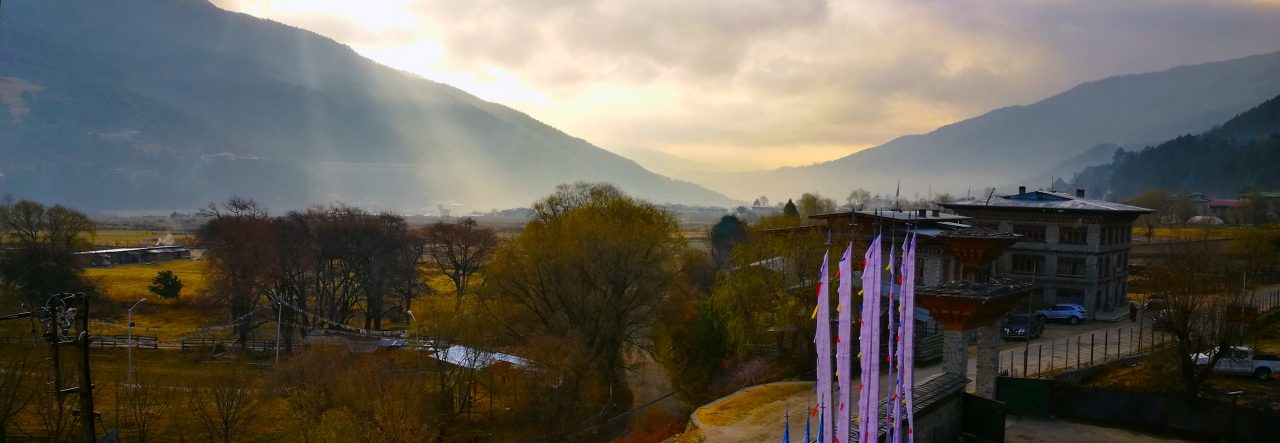There are few key takeaways and thoughts that come to my mind as I read this excellent article by Karma Choden on the Australia Dollar Rush. This new gold rush is currently draining our civil service, especially our teaching profession.
Takeaways
– Dollars don’t grow on trees. Actually, they don’t come easy at all. Don’t expect a windfall at least in the first few years of your stay there. Be ready to go unemployed or underemployed for an extended period. And in any case be willing to do odd jobs.
– Be honest with yourself about your abilities. Are you OK to live on a small or no income, starve for good food, wake up at midnight, drive or commute to work every day or night with red eyes? Do you understand the emotional and psychological consequences – besides the financial risks and the danger to your life? It is not for everyone, mind you. I know many who did everything to get there, found the sad realities and came back after few months. These stories hardly get to the glittery social media – let alone our mainstream newspapers. Nobody shares their personal failures, hardships or struggles because of our strong face-saving culture.
– If you are ready to take all these risks and if you have nothing to lose, I guess, you could give a try. If there is someone willing to defray you for a while or if there is a job waiting, it is even better. But do not get enamoured by the selfies and celebrations from picnic outings and parks from Down Under. You might earn, no doubt. But tough life awaits. Be prepared.
Thoughts
– If you are willing to wake up at midnight, do double shifts and odd work round-the-clock till 5 pm in the evening – for many years, won’t you earn the same? And together with your folks and community in our own country? What is really standing between modern Bhutanese and hard work at home? Is it our ego? Is it the social pressure? Is it because we are so judgmental? I had to pay Nu. 13,000 to a plumber for a real shitty job he did over a weekend last year. Can we have Bhutanese taking up such jobs and do better?
– Why can’t we create similar opportunities back home? I first heard the phrase “private sector development as the engine of growth” during the Vision 2020 exercise – way back in 1996. The exercise involved all the government employees above Grade 7. That was 21 years back. Since then, nothing much has changed. Our private sector continues to struggle with unpredictable rules, over-regulations and substandard services. Can we take a very honest look at why this “engine of growth” refuses to roll on? Except for few in tourism business, why is it that our economy doesn’t enable for people to move up, from lower income level to the next? This despite all the chest-thumping statements of fastest growing economy, ease of doing business and untold riches from hydropower development. Isn’t jobless growth dangerous? In 11th Plan Nu. 140 billion (140,000,000,000) was pumped into the economy, besides a similar amount in the hydropower projects. Where is this wealth going? Outside? Or into just a handful of people here?
– Lastly, seeking fortune elsewhere is fine as long as it is an individual choice. However, I am totally against sending young and unemployed Bhutanese to the Middle-East as a solution to the growing unemployment problem. I don’t agree with this short-term quick-fix response to a very serious national issue. It is one thing for people to go seek greener pastures. But it is a failure if our youth are forced to leave the country and face exploitations of all sorts in a foreign land.
~~~~~
~~~~~
NB:
These views do not pertain to those receiving AusAid scholarships. I, myself, have recommended several applications for postgrad studies. Besides, if advancing your qualification is your aim, just go for it. The above article is a cautionary note, and not a dissuasion, for those planning to give up well-paid jobs, take loans and mortgages – looking for ‘better’ future in the Kangaroo Land.
_______________________________


Truly mentioned sir. Like you, i was totally against this short term remedy or measures to fulfill political pledge and resorting to put such employment schemes in place resorting to life risk of our young men and women. La
LikeLike
It is terrible.
LikeLike
Indeed sir
LikeLike
Similar situation for Japanese language students in Japan la. The health and social impacts that might result from over stressing the body and mind of youths at this tender and vulnerable age is unimaginable. Students have to resort to work illegally in order to meet monthly expenses and pay back debt to the government/agent.
LikeLike
My God! I hope this comes to light
LikeLike
A very thought-provoking post Sir. You spoke my mind too. Thanks for sharing your concerns la.
LikeLike
Lots of our civil servants are trying to go to Australia instead of building a future for themselves and for their children here in Bhutan. Sad..
LikeLike
Well written. We always think other part of valley as green unless we are into it. Love to read both article. Thanks
LikeLike
Somewhere something is going terribly wrong. Not only unemployed youths, even civil servants are leaving jobs and looking for green pasture… All need to ponder and study future implications it will have to nation in long run… Are we serious about it????
LikeLike
Really, I don’t know. The joke I heard is that a group of friends were discussing what’s going on in Thimphu. One exclaimed, “What’s happening to our country? Where are we all heading for?” Another replied, “Australia”. 🙂
LikeLike
In Australia all these odd jobs are done by locals (Aussies) and have high dignity of Labour. Sweeper is treated same as another Office job. Commercial cleaner is like any other job. Must be the reason no one feels any less doing such jobs and making a living.
Having said that, last week in a gathering during Wang, a senior civil servant was complaining over why she came here spending 21 lacs. If she heard lil about how one has to struggle to mine $$ she won’t have come. I hope such article by Sir and madam Karma opens some ignorant eyes. I for myself when asked about Australia always make sure to present two extreme cases -1 people make good money and another people who struggle to do same. Some regrets to extend of giving up. The good thing about coming here is, people learn. Like Sir mentioned in article, once they work here, many say, if we do same hard work, even in Bhutan, we could make same amount. I hope more and more people get educated.
However, now many Bhutanese are also studying first and going for professional jobs. I hope this trend can change everything in future.
Thanks
LikeLike
Excellent, point. Thanks. I will post this comment on FB.
LikeLike
Thanks to all who have read this short article. My post was just a review of Karma Choden’s post. But I am surprised that it has gone viral and is already becoming one of the “most read” articles from some 50 articles I have written so far. Since it is based on another article, it doesn’t tell the whole story. My target audience, though, were people who were giving up well-paid jobs, life and positions in the civil service to dive into this adventure. Obviously, the final decision – and the consequences thereafter, are subjective to the circumstances one was in, before leaving – and to the mindsets and adaptability once there. Through my post, I just wanted to make people aware of the basic realities. I have no doubt that if people rise above these challenges they would thrive. But to get there, the journey is bit long and arduous and definitely not paved in gold. People just look at what they want to see (the rosy results) and often ignore of the struggle and sleepless nights others have gone through.
LikeLike
I had a decent job back home. Worked as a civil servant over a decade period. I left my job last year in search of greener pasture here I Australia.
Australia never treated me bad and I assume that my fellow countrymen were equally treated. There isn’t racial discrimination. A few hour job is sufficient enough to clear my tuition fees every semester, a decent amount of saving that would give me a decent home, a decent car and a better education to my children and a decent life after I leave Australia.
But there are stories heard and written by fellow countrymen about their lives in Australia. Such an outcry is a result of unsatiated desires to gather wealth. “Make hay while the sun shines”, but they seems to be making ‘so much hays’ to “built fortresses and drive BMW.”
It is true that it will take some time – a few months to get job. Once the obstacle of job hunting is clear things will definitely improve unless the “desire is controlled,” else you might walk like Lady Macbeth in somnabolic state.
My suggestion is do not travel to Australia alone if you are privately sponsored.
LikeLike
Thank you Lobsang for sharing your views and experience. Yes. the insatiable desire may be difficult to fulfil. I also have friends who moved there and are looking more to give good education to their children rather than build dzongs at home. Excellent points.
LikeLike
Kudos to the author. Research has been conducted very correctly. I think more of this type of studies are needed and must come out. In this materialistic world people’s wants are never fulfilled. The intake of expatriates must be curtailed. However, determination and co operation in such matter is important.
Thanks for sharing the article.
LikeLike
Well said in the article, to come and live in Australia is not a bed of roses, rather need more effort and sweating to earn a living and make payment for semister fres for privately funded students. However, for those who are lucky enough to get scholarship it’s their net saving. So dear felas think twice before you plan to land in Australia if you are already employed. By saying am not discouraging those who really wants to come, but one should set a mind and accept the realities we face in Australia. .. you earn according to your effort …..
LikeLike
Pingback: Spicing your way to success | Dorji Wangchuk
As someone who is both a civil servant and has an experience of Australian life, here is my reflection featured in kuensel few months back…. http://www.kuenselonline.com/australian-dream-not-all-about-money-or-leaving-the-system/
LikeLike
Why is my comment not getting through? Did I miss something?
LikeLike